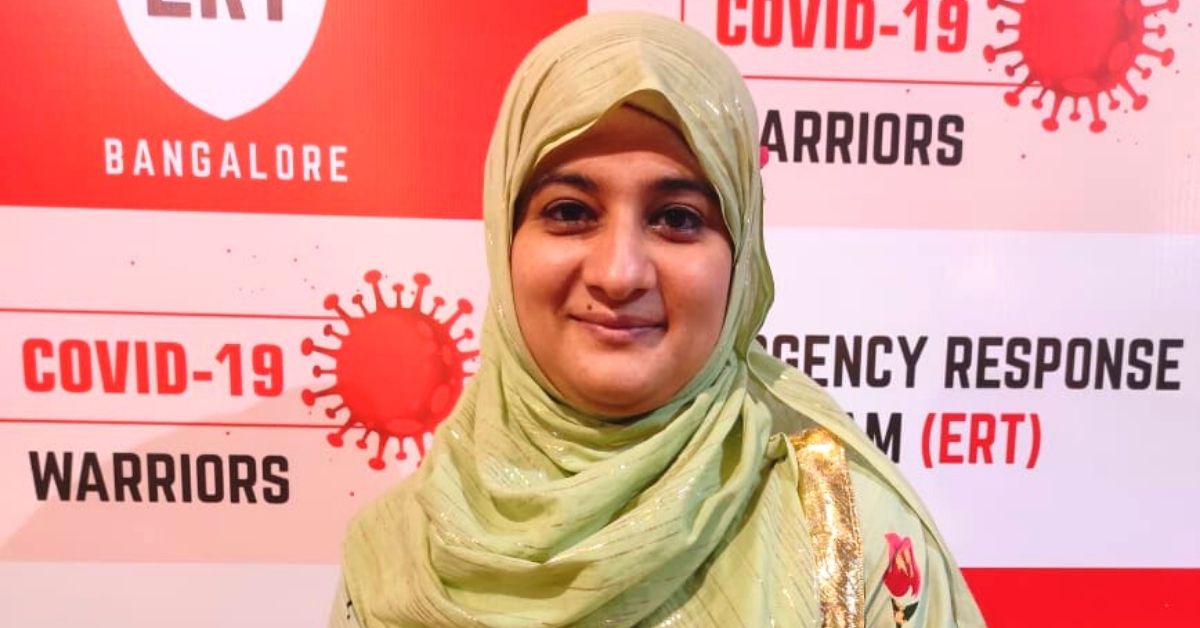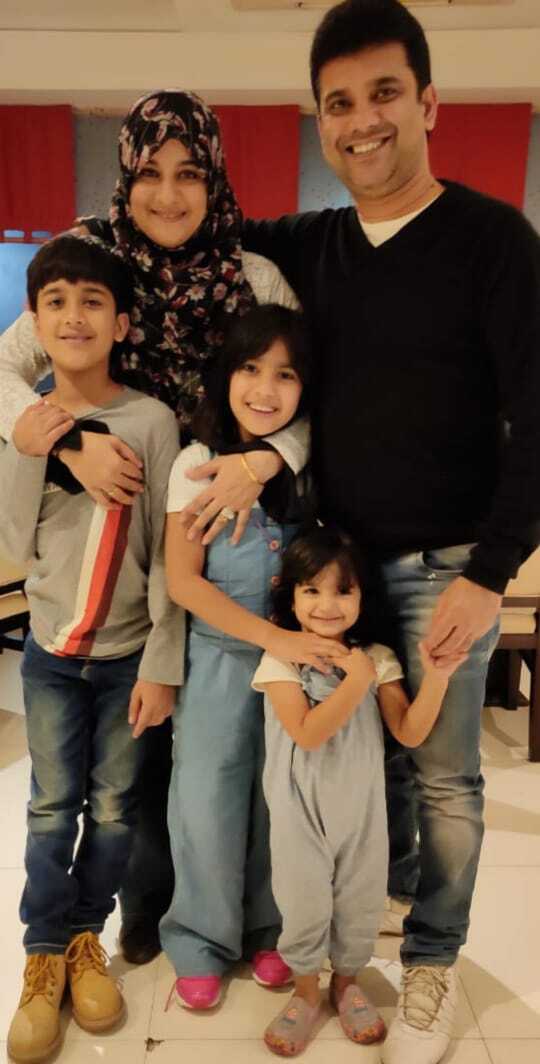‘We Are In This Together’: COVID-19 Volunteer On What 300 Calls a Day Looks Like
Just when Bengaluru-based Zahra Ali thought things were on their way to improve, the second wave of coronavirus arrived, proving to be far deadlier than the first. She talks about the highs and lows of being a COVID-19 volunteer, and what gives her hope and keeps her going.

After catching sleep for barely an hour on the previous day, Zahra Ali Akthar, wakes up at 3 am to eat before her Ramzan fast begins, after which she’s back to answering calls from people seeking help. She uses her 15-minute break time, at around 11.30 am, to narrate her experience as a helpline volunteer at Mercy Mission and a member of Project Smile Trust, an umbrella organisation, comprising 20 NGOs dealing with COVID-19 related emergencies in Bengaluru. Zahra has been a volunteer since June 2020, but the last month has been especially devastating, to say the least.
This is a first person account of Zahra, who shares what a day in a volunteer’s life looks like.
After catering to the callers’ every need — including food, transportation, plasma donors and money — continuously for six months, there was some respite coming our way, as the number of coronavirus cases had started dwindling. By December, the calls had reduced dramatically, and in January, we were all hopeful that we could put the disastrous year that 2020 was behind us.
However, towards the end of March, the calls increased and as April set in, I couldn’t shake the feeling that we were marching towards impending doom. This time, the demand from people was shocking, and the tone of desperation clung to the air. They wanted beds, oxygen cylinders and ventilators.
Unlike the first wave, teenagers and elderly alike are now calling us, begging for healthcare facilities. On a daily basis, I hear COVID-19 infected patients gasping for breath or someone saying their oxygen levels are dropping as they speak.
As a mother of three children and a daughter of octogenarian parents, I am scared, but watching frontline health workers as they toil hard every minute of their lives, when they could be sitting at home with family, gives me the strength to answer every call and make sure needs are met without delays. Every second is precious — people have died by the time we could call them back with updates.
I feel like I am watching dystopia unfold in front of me; there is chaos, morbidity and a feeling of helplessness.
By now, my kids, Zayan (13), Namira (9) and Naira (4), have understood what their parents are doing. They know when things are falling apart. My youngest one will come and hug me or Zayan will offer to note down the details. While I am not happy with the idea that they have to see this apocalyptic situation, I am glad they are learning to be empathetic and thoughtful from a very young age. Meanwhile, my husband, Naseem Akhtar, who has donated plasma 3 times, comforts and helps me cope with the crisis.
A day in the life of

On any given day, I get an average of 300-400 calls, along with hundreds of messages. I feel a heightened sense of guilt for not being able to take every call. My phone is constantly buzzing, and since Naseem is also a volunteer, we cannot spend much time with our kids.
I am always armed with a notepad or a laptop to jot down details of the caller. Then, I try to find the nearest resources and patch them through.
Every time someone pleads or breaks down on the phone as they watch their loved ones struggle to breathe, it takes a toll on my mental health. I get callers who are so frightened that they struggle to even frame a sentence. When I sense hopelessness in a caller’s voice, I spend an extra minute just to give them some hope. By the time some callers reach us, they have lost all their strength because of being turned away from everywhere. I’ve counselled people who prefer ending their lives than seeing their family members die in an undignified way.
The level of incompetence aside, there is still a lack of awareness of the illness. Even at this stage, I have to tell callers why wearing a mask is important. Due to the tedious admission process or chaos, an individual loses their sense of logic. People have been grappling with something as basic as identifying the nearest hospital.
The situation is far worse for senior citizens who live alone, or whose children stay abroad. There was an elderly couple who called me at 1 am for a bed. They wanted to shift to a hospital with an ICU facility from a COVID-19 centre, but hospitals refused admission as the husband was 87-years-old. While I was arranging for the bed, I realised that a lot of prefer choosing to focus on younger people. I broke down that very moment as my parents are of similar age and my dad is diabetic. I imagined my parents in place of them and it was harrowing.
In another case, two women were trying to leave from a COVID-19 centre after their relative’s saturation became low. The patient was nearly 80-years-old, and the hospital staff informed me that it looked like the women were just abandoning the patient.
If, on one hand, we are seeing an apathetic attitude towards the elderly, one the other, we see inspiring stories as well. A food delivery executive offered to deliver a cylinder to an elderly couple quarantined at home on our request. He took the risk of switching off his tracker since they are not allowed to deliver anything besides food, solely out of humanity.
Every time we are able to arrange a COVID-19 related resource, all the sleepless hours, breakdowns, and tragic news disappear. The heartfelt gratitude from callers makes my day.
The past couple of weeks have shown me the kind of humanity that I never thought was possible. I see strangers overlooking their differences and coming together as one unit to solve the crisis. My heart swells with pride knowing we are in this together.
Every life is precious and no one is invincible. So, I would urge everyone to stay at home, as we are all carriers of coronavirus, which means we can be partly responsible for our loved one’s death. And this is one guilt you don’t want to carry around for life.
Edited by Divya Sethu
If you found our stories insightful, informative, or even just enjoyable, we invite you to consider making a voluntary payment to support the work we do at The Better India. Your contribution helps us continue producing quality content that educates, inspires, and drives positive change.
Choose one of the payment options below for your contribution-
By paying for the stories you value, you directly contribute to sustaining our efforts focused on making a difference in the world. Together, let’s ensure that impactful stories continue to be told and shared, enriching lives and communities alike.
Thank you for your support. Here are some frequently asked questions you might find helpful to know why you are contributing?


This story made me
-
97
-
121
-
89
-
167











